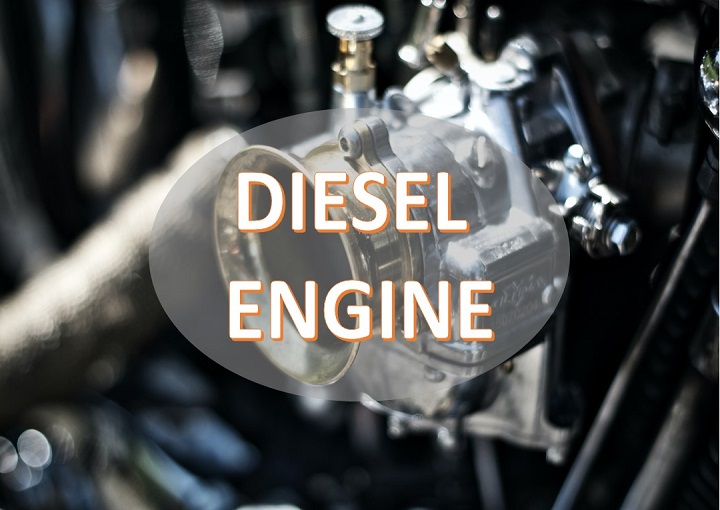If you’re interested in diesel engines, our comprehensive guide has got you covered. From how they work to their advantages and disadvantages, we cover everything you need to know. Whether you’re a diesel engine enthusiast or just looking to learn more, this article will provide you with valuable insights into this fascinating technology.
Diesel engines have been around for over a century and have been an integral part of various industries, including transportation, power generation, construction, and agriculture. In this article, we will discuss diesel engine internal combustion in detail, covering its history, working principle, components, advantages, and disadvantages.
History of Diesel Engine
In 1892, Rudolf Diesel invented the diesel engine, which used compression ignition to ignite the fuel. The first diesel engine was a single-cylinder, four-stroke engine that was able to achieve an efficiency of over 25%. Diesel engines were initially used in large industrial applications such as ships and generators, but with advancements in technology, they have become popular in smaller applications such as cars and trucks.
Working Principle of Diesel Engine
Diesel engine internal combustion works on the principle of compression ignition. The fuel is injected into the cylinder at high pressure, which causes it to vaporize and mix with the air. The mixture is then compressed, which raises the temperature of the mixture, causing it to ignite. The energy released during combustion pushes the piston, which in turn rotates the crankshaft, converting the reciprocating motion into rotational motion.
Components of Diesel Engine
Diesel engines have several components that work together to generate power. The major components of a diesel engine are:
Fuel System
The fuel system is responsible for delivering fuel to the engine. It consists of a fuel tank, fuel pump, fuel injectors, and a fuel filter.
Air System
The air system is responsible for delivering air to the engine. It consists of an air filter, turbocharger or supercharger, intercooler, and intake manifold.
Cooling System
The cooling system is responsible for regulating the temperature of the engine. It consists of a radiator, water pump, thermostat, and coolant.
Lubrication System
The lubrication system is responsible for reducing friction between moving parts. It consists of an oil pump, oil filter, and oil passages.
Electrical System
The electrical system is responsible for starting the engine and providing power to various components. It consists of a battery, starter motor, alternator, and various sensors.
Exhaust System
The exhaust system is responsible for removing exhaust gases from the engine. It consists of an exhaust manifold, catalytic converter, muffler, and exhaust pipe.
Advantages of Diesel Engine
Diesel engines offer several advantages over gasoline engines, including:
- Higher efficiency: Diesel engines are more efficient than gasoline engines because they have a higher compression ratio and use less fuel to produce the same amount of power.
- Lower emissions: Diesel engines produce fewer emissions than gasoline engines because they burn fuel at a higher temperature, which results in more complete combustion.
- Durability: Diesel engines are more durable than gasoline engines because they have fewer moving parts and are built to withstand high temperatures
Disadvantages of Diesel Engine
Diesel engines also have some disadvantages, including:
- Higher initial cost: Diesel engines are more expensive to produce than gasoline engines due to their higher compression ratios and additional components, such as turbochargers and intercoolers.
- Louder operation: Diesel engines tend to be noisier than gasoline engines due to their higher compression ratios and the sound of the fuel injectors.
- Slower acceleration: Diesel engines tend to have slower acceleration than gasoline engines due to their lower horsepower and torque output.
- Higher emissions of particulate matter: Diesel engines produce higher levels of particulate matter emissions than gasoline engines, which can contribute to air pollution and respiratory problems.
Applications of Diesel Engine
Diesel engines are used in a wide range of applications, including:
- Transportation: Diesel engines are commonly used in trucks, buses, trains, boats, and airplanes.
- Power generation: Diesel engines are used in generators to produce electricity in remote areas or as backup power.
- Construction: Diesel engines are used in construction equipment, such as excavators, bulldozers, and cranes.
- Agriculture: Diesel engines are used in agricultural equipment, such as tractors and combines.
Maintenance of Diesel Engine
To keep a diesel engine running smoothly, it is important to perform regular maintenance, including:
- Changing the oil and oil filter regularly
- Replacing the air filter
- Inspecting and replacing the fuel filter
- Checking and adjusting the timing belt or chain
- Inspecting and cleaning the cooling system
- Inspecting and replacing the battery
- Checking and replacing worn or damaged belts and hoses
Common Problems with Diesel Engine
Some common problems that can occur with diesel engines include:
- Hard starting or no starting
- Loss of power
- Excessive smoke from the exhaust
- Overheating
- Fuel leaks
- Clogged fuel injectors
- Faulty glow plugs
Environmental Impact of Diesel Engine
Diesel engines have a higher carbon footprint than gasoline engines due to their higher emissions of particulate matter and nitrogen oxides. However, advancements in technology have led to the development of cleaner-burning diesel engines, such as those that meet the Euro 6 emissions standards.
Future of Diesel Engine
The future of diesel engine internal combustion is uncertain, with many countries and companies pushing for the adoption of electric vehicles. However, diesel engines will likely continue to be used in certain applications, such as heavy-duty trucks and off-road equipment.
Conclusion
Diesel engine internal combustion has been an important technology for over a century, powering transportation, power generation, construction, and agriculture. While diesel engines offer several advantages over gasoline engines, they also have some disadvantages and environmental concerns. Regular maintenance and advancements in technology can help reduce the environmental impact of diesel engines.
FAQs
1. What is the difference between a diesel engine and a gasoline engine?
Ans. Diesel engines use compression ignition, while gasoline engines use spark ignition. Diesel engines have higher compression ratios and lower fuel consumption than gasoline engines. Diesel engines produce less carbon monoxide and more nitrogen oxides than gasoline engines.
2. Can diesel engines run on biodiesel?
Ans. Yes, diesel engines can run on biodiesel, which is a renewable fuel made from vegetable oils or animal fats.
3. Why are diesel engines more expensive than gasoline engines?
Ans. Diesel engines are more expensive to produce due to their higher compression ratios and additional components, such as turbochargers and intercoolers.
4. What is particulate matter, and why is it a concern with diesel engines?
Ans. Particulate matter is a type of air pollution made up of tiny particles, such as soot

